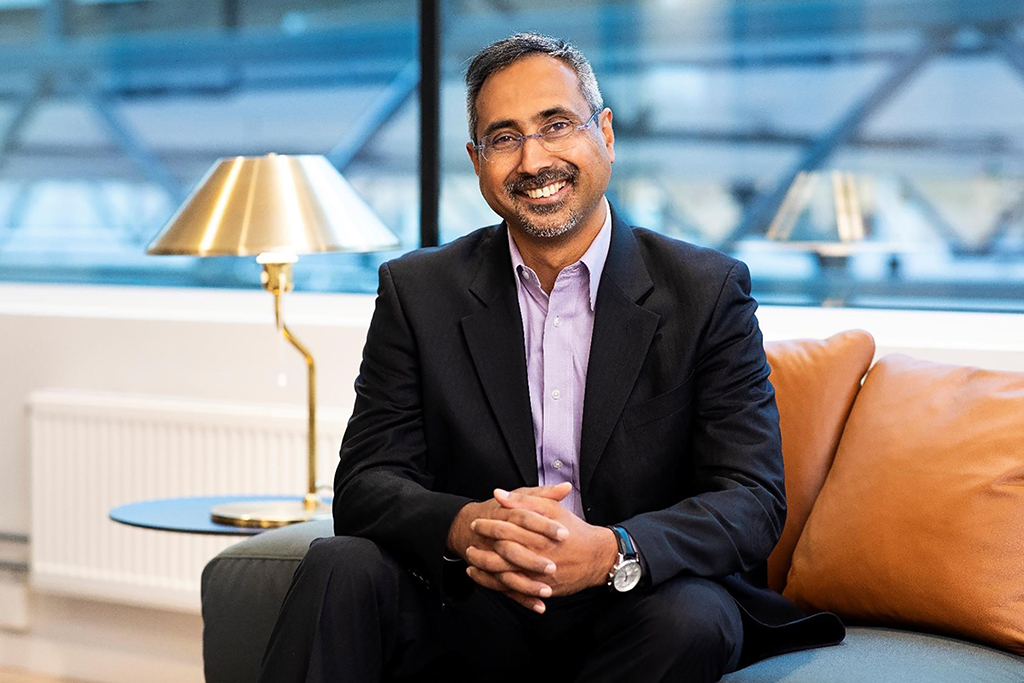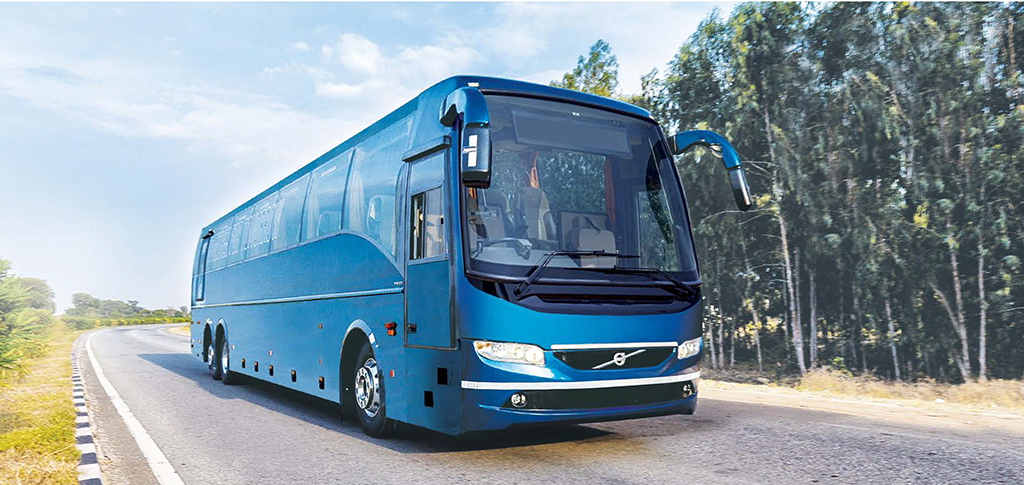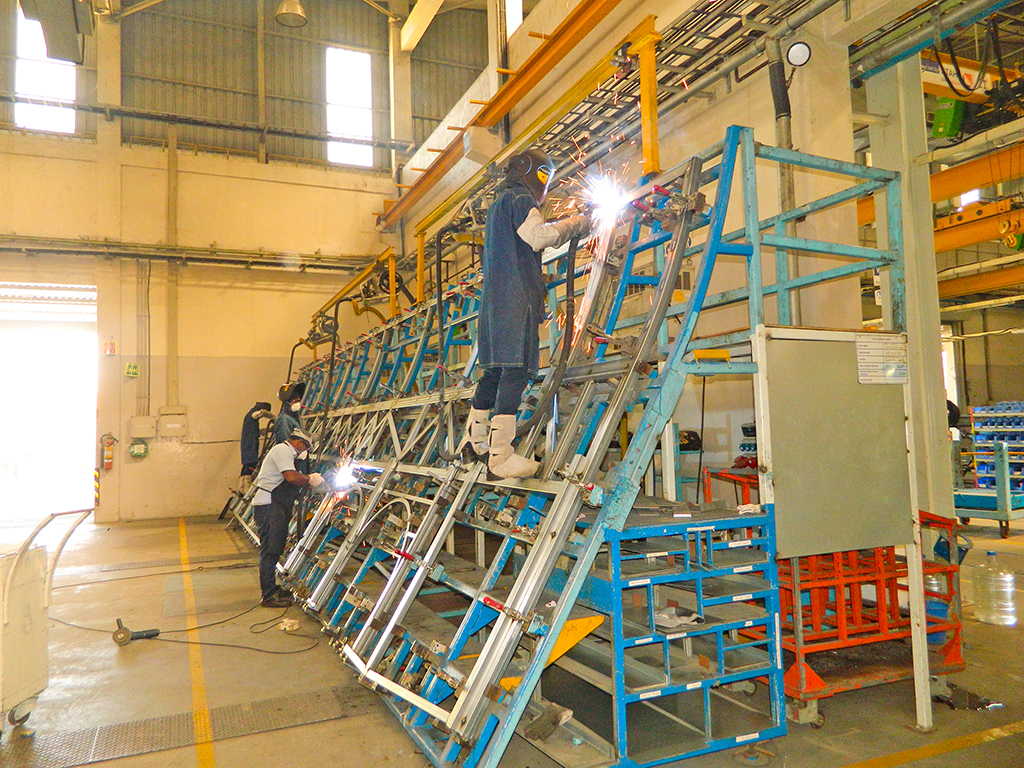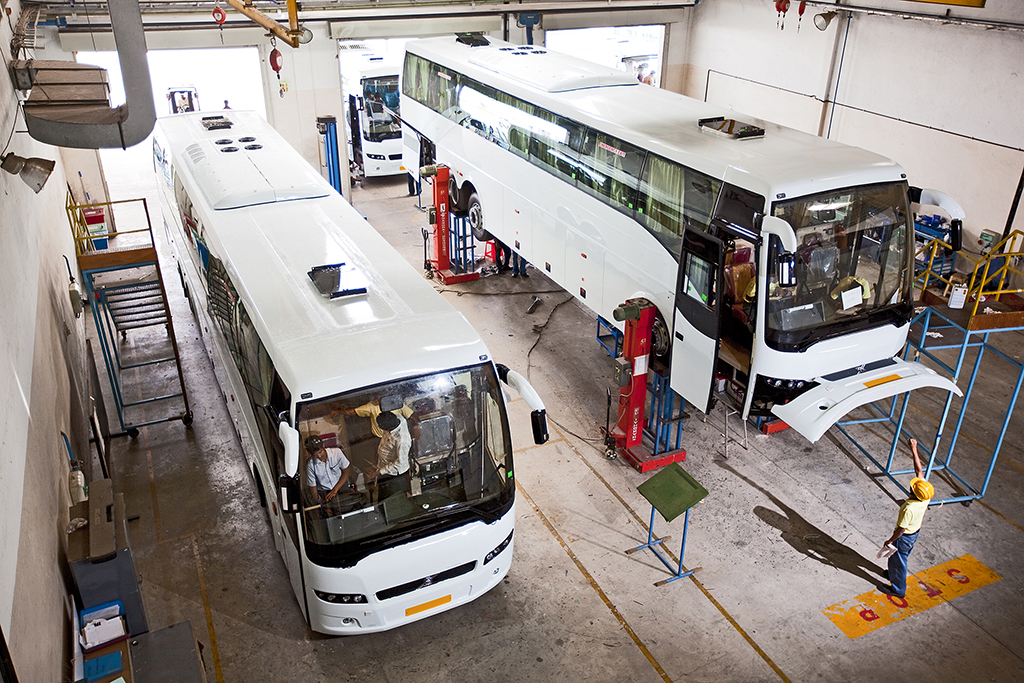– Akash Passey, President – Bus Division, VECV

Speaking to N. Balasubramanian in an exclusive phone-in, Akash Passey, President – Bus Division, VE Commercial Vehicles shares deep insights on essential measures to revive the Indian bus industry, while also revealing how the doubly-powerful VECV brand – with Eicher and Volvo under its belt – is surging ahead to make a real difference to the industry.

Excerpts from the interview:
What is your reading of the market right now especially after the 2nd wave of COVID?
The pandemic has been unprecedented in its impact, thereby severely denting the bus industry. But with the second wave now abating, there are nascent signs of revival. We see at least 25% of premium segment buses back on the roads. In the light and medium-duty segments, the volume of mass transportation buses has started going up a bit. During the festive season, operators are hoping for things to improve even more. The big picture is that private operators have resumed buying buses and State Transport Undertakings (STUs) are considering releasing tenders over the following months.
Please share details of the launch of the Volvo 9400 B8R 13.5 metre coach. What message does this product convey to the industry?
The government has permitted up to 13.5 metre buses in 4×2 configuration. As has been our track record, Volvo Buses is the first OEM to offer this solution in India. With its enhanced passenger and luggage carriage abilities, the bus will deliver even better Total Cost of Ownership to our customers.

What does the future hold for the new venture where VECV handles Volvo-branded buses as well, and what would be your agenda for the next year or so?
After the integration of Volvo Buses India with VECV, we now have the capability to offer buses from 5-15 metre in length – across the entire value spectrum from mass to premium products – for a range of applications on diesel and CNG fuel options, alongside a growing portfolio of electric buses.
There is a deficiency of quality bus-based public transport in India. To help the country catch up with the developed world in this regard, VECV offers a wide portfolio of buses that addresses needs of different sections of the society.
What would be the medium- to long-term outlook for the bus industry from the pandemic point of view?
People are travelling. And there are more buses in operation now. Certain segments such as staff transport are showing an uptick, but the bottom line is that COVID will not go away. Therefore, difficult times for the bus industry are far from over. The industry needs to have a sustained positive economic climate for 6-8 months for a proper revival of bus transport. If we can prevent or minimize the impact of the 3rd wave, we are in for better times. Bus operators are raring to start, and banks want to do business. Our long-term outlook for the bus industry remains great.
VECV has utilized the past 15 months to prepare for the future with products, and skill sets. As market demand comes back, the portfolio we have created will pan out in a strong way.

What steps do you think will need to be taken to nurture Indian bus market to health?
Public transportation segment has tremendous likelihood to succeed, if the government continues to develop policies that create an enabling environment. The rollout of the national permit is a case in point. Moreover, it will be a win-win situation if the Public Private Partnership model can be strengthened, and private operators are brought into the fold with long-term contracts. Ultimately public transport must appeal to passengers. It must be a desirable alternative to personal vehicles in terms of comfort, safety, flexibility, and reliability.
What is your take on the scrappage policy? And what sort of an impact do you expect it to have on the bus sector?
The scrappage policy is a great step by the government but unfortunately, it is not mandatory. If it is implemented in the right spirit, then it will be a positive step forward. But if it is approached by way of prolonging the life of the product through fitness certificates, the policy may not benefit the industry.

The government can extend support to the bus sector by funding STUs and by ensuring there are new purchases. What is your view on this? And how do you think the government will support the private bus sector given how badly they have been affected since last year?
When it comes to funding, the government has been helpful in announcing large scale public procurements. The challenge for state transport corporations is that fleet utilization levels remain low due to the impact of COVID. They also must contend with the impact of high staffing costs, subsidies, and operation on unprofitable routes. We encourage state and central governments to provide funds to support STUs.
When it comes to private operators, they have restructuring programs in place which banks are taking care of. Over and above this, the bus industry needs more support by way of GST reduction, access to lower cost finance and an enabling environment for PPP to create a win-win scenario.